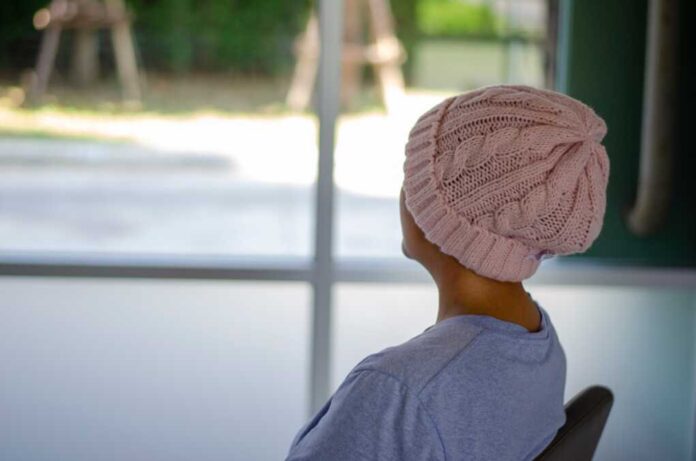
Immunotherapy is revolutionizing cancer treatment, allowing nearly 80% of patients in a groundbreaking study to avoid surgery, chemotherapy, and radiation while still achieving complete cancer remission.
At a Glance
- A Memorial Sloan Kettering study showed 100% success treating rectal cancer patients with immunotherapy alone, without surgery or chemotherapy
- Nearly 80% of patients with various cancer types were successfully treated using only immunotherapy
- Patients with mismatch repair-deficient (MMRd) tumors responded particularly well to the treatment
- The FDA granted “Breakthrough Therapy Designation” to the immunotherapy drug dostarlimab for rectal cancer treatment
- This approach helps patients maintain organ function and avoid debilitating side effects of traditional treatments
A New Paradigm in Cancer Treatment
Cancer treatment has traditionally relied on a combination of surgery, chemotherapy, and radiation—approaches that, while often effective, can leave patients with significant quality-of-life challenges. Now, research from Memorial Sloan Kettering Cancer Center is offering new hope through immunotherapy, a treatment that harnesses the body’s own immune system to identify and destroy cancer cells. This approach is showing remarkable success in allowing patients to avoid more invasive and debilitating treatments, particularly for those with specific genetic mutations in their tumors.
The initial trial involved 18 rectal cancer patients, all of whom showed complete remission—an unprecedented 100% success rate. Encouraged by these results, researchers expanded the trial to include 103 patients with various cancer types. Nearly 80% of these patients experienced successful treatment with immunotherapy alone, avoiding the need for more invasive interventions. These findings, published in The New England Journal of Medicine, represent a potential paradigm shift in cancer treatment approaches.
How Immunotherapy Works
Unlike chemotherapy, which attacks rapidly dividing cells throughout the body, immunotherapy works more precisely by enhancing the immune system’s ability to recognize and attack cancer cells. The specific type used in the Memorial Sloan Kettering trial is called a checkpoint inhibitor, which prevents proteins from deactivating T cells—the immune system’s natural defenders. This allows T cells to continue identifying and destroying cancer cells that might otherwise evade detection.
The treatment specifically targets tumors with a genetic mutation called mismatch repair-deficient (MMRd), which makes them particularly vulnerable to immunotherapy. In the expanded trial, patients received Jemperli (dostarlimab), a PD-1 inhibitor, for six months. The results were so promising that the FDA granted dostarlimab “Breakthrough Therapy Designation” for rectal cancer treatment in December 2024, accelerating its development and review process.
Immunotherapy is typically administered through intravenous infusion and can be given daily, weekly, or in treatment cycles. While it doesn’t work for all cancer types, it has shown particular effectiveness in melanoma, lung cancer, and now certain gastrointestinal cancers with specific genetic profiles.
Preserving Quality of Life
Perhaps the most significant advantage of immunotherapy is its potential to preserve patients’ quality of life. Traditional cancer treatments often come with substantial side effects and functional impairments. Surgery can remove vital organs or affect their function, while chemotherapy and radiation can cause infertility and compromise bowel, urinary, and sexual functions.
Maureen Sideris, a gastroesophageal junction cancer patient in the trial, highlights the personal impact of this approach. “I was afraid that if I got surgery on my esophagus, I wouldn’t be able to talk for a while, which would be awful. To have immunotherapy alone was just amazing,” she explained. Sideris avoided surgery, chemotherapy, and radiation while achieving complete cancer remission—a life-changing outcome that preserves function and avoids permanent alterations to her body.
Looking Ahead: The Future of Cancer Treatment
While immunotherapy alone won’t replace traditional treatments for all cancer patients, these findings suggest a significant shift in how we approach cancer care. The immunotherapy-only approach has already been incorporated into the National Comprehensive Cancer Network’s treatment guidelines for certain cancer types. Some original trial participants remain cancer-free years after treatment, suggesting durable responses.
Researchers continue to explore combinations of immunotherapy with traditional treatments for patients who don’t respond completely to immunotherapy alone. Evidence suggests that combining chemotherapy with immunotherapy may improve outcomes by targeting multiple cancer pathways and reducing drug resistance. This complementary approach may provide benefits when either treatment alone is insufficient, potentially expanding immunotherapy’s reach to help more patients.


















